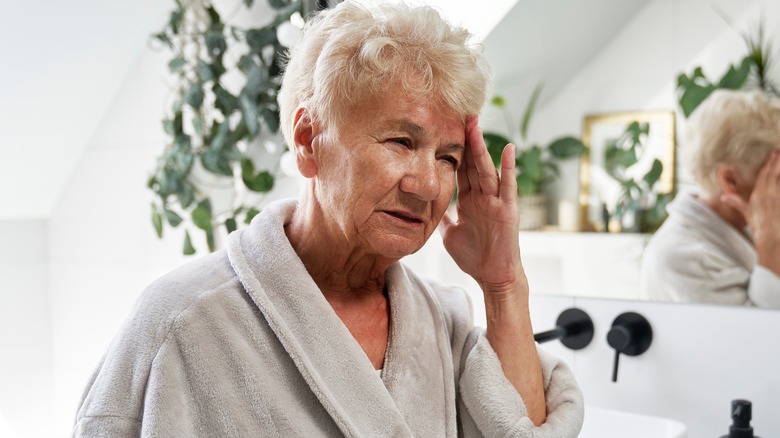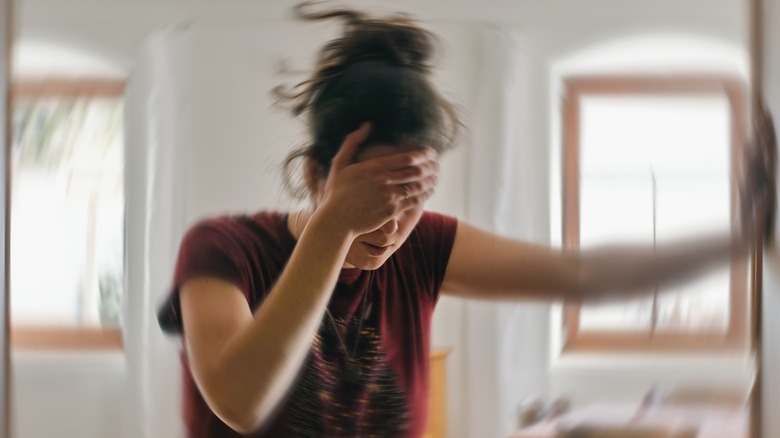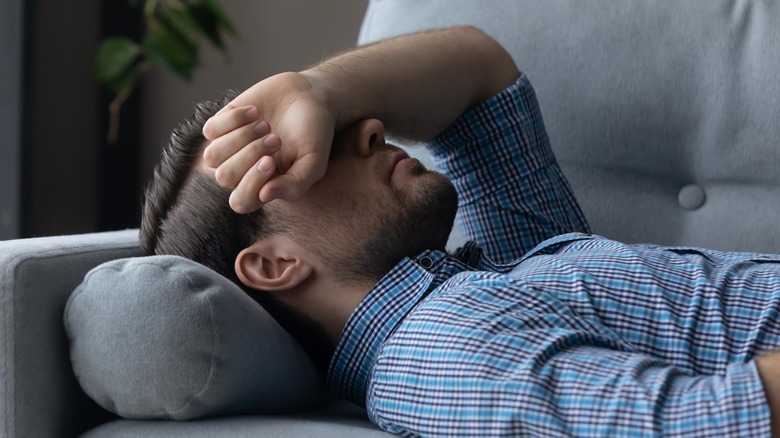
Following a bowel movement, you might feel relieved, satisfied, or even a sense of relaxation. For some individuals, however, going number two can leave them feeling physically weak in the knees. It’s not uncommon for our body to feel weak when we’re ill, haven’t eaten in a few hours, or after an intense workout, but how does weakness relate to pooping?
Much like an intense workout, the connection lies in the physical strain the body undergoes during defecation. As we work to expel stool from the body, we often tighten our abdominal muscles as we push. According to experts at Harvard Health Publishing, this triggers what’s known as the body’s vasovagal reaction, during which our heart rate and blood pressure decrease. “That can make you feel dizzy when you get up after a bowel movement, or tired,” Dr. Ellen M. Stein, associate professor of medicine in the Division of Gastroenterology and Hepatology at Rutgers Robert Wood Johnson Medical School, told Well + Good. This can especially be the case if you’re forgetting to breathe as you push. Therefore, if you find that you’re physically worn out after a bowel movement, it may mean that you’re overexerting yourself.
What is defecation syncope?

Sometimes, we may strain ourselves to the point of physical collapse during a bowel movement. Known as defecation syncope, this occurs when a person passes out from pushing too hard while pooping. While little is known about the condition, cardiologist and syncope researcher Dr. Robert Sheldon told CTV News that defecation syncope accounts for up to 3% of his patients’ syncope cases.
The cause of defecation syncope is also thought to be related to the body’s vasovagal reaction, where excessive strain prompts a drop in heart rate and blood pressure and causes the person to lose consciousness. Those with certain pre-existing health conditions, such as hypotension, may be at an increased risk for defecation syncope. This was supported in an early 1986 research article published in JAMA Internal Medicine in which researchers examined 20 cases of defecation syncope. Nine patients were found to have medical issues, including gastrointestinal problems, heart disease, and stroke-like symptoms. While underlying health issues may play a role in cases of defecation syncope, no clear cause was found for 11 of the study participants.
What to do if a bowel movement has you feeling weak

If you find yourself feeling weak either during or following a bowel movement, make sure you prioritize your safety by laying down right away, particularly if you begin sweating or develop skin that is cold or clammy to the touch (via CTV News). Once reclined, it shouldn’t take long before you begin feeling normal again, according to experts at Harvard Health Publishing. However, if feelings of weakness do not subside within a few minutes, visit your physician to determine whether you may be experiencing an alternate health issue.
There are also lifestyle habits one can implement to help keep digestive health in tip-top shape and make bowel movements a less strenuous experience. Overstraining while pooping is more likely to happen if we’re constipated. Therefore, remember to stay adequately hydrated and engage in regular physical activity to help keep constipation at bay. Finally, make sure you’re getting plenty of fiber to support your gut health by incorporating nutritious whole grains and veggies into your diet.




